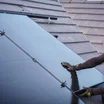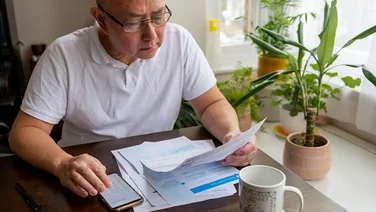We receive a small fee from trusted installers when you request a quote through our site. This helps us keep our content independent, well-researched and up to date – Learn more

- CPT can boost solar efficiency by 15% by using ‘wasted sunlight’
- Average solar energy efficiency is about 22%
- Company hopes to have new technology on market by 2028
Cambridge Photon Technology (CPT), a deep-tech spin out of Cambridge University, has developed and patented solar technology that it says can help silicon panels generate 15% more power by making use of ‘wasted sunlight’.
In a statement, CPT said its photon-multiplier technology fits into standard solar modules without any expensive changes to the panel system to make use of sunlight that it otherwise would go to waste. The company said this offers “one of the most practical routes” to increasing global solar panel efficiency.

Get free solar panel quotes
Answer a few quick questions, and our trusted installers will send you bespoke solar panel quotes – for free.
Learn more about solar panel government grants by reading our dedicated page
As solar panel efficiency rates are around 22%-25%, any new technology that improves the average PV system’s output will help meet solar energy demand.

What is wasted sunlight?
Wasted sunlight very simply refers to sunlight to electricity that reaches solar panels but isn’t turned into electricity. It is ‘wasted’ usually because it is reflected off the panels and turned to heat, which further reduces a panel’s efficiency. This happens because the silicon material on solar panels can only turn a certain amount of sunlight into usable electricity.
The breakthrough comes amid a huge influx of cash for CPT; the company has raised more than £1.5 million in ‘pre-Series A’ funding (investment that usually happens before a much bigger round of funding called ‘Series A’) to ramp production of the photon-multiplier technology.
Dr Claudio Marinelli, CEO of CPT, said the funding shows that the private sector is confident in the technology’s potential to “transform solar efficiency at scale”.
Chris Gibbs, investment director at Cambridge Enterprise Ventures, one of CPT’s investors, said the technology showed the “kind of transformative innovation needed to accelerate the global transition to sustainable energy”.
The company is planning to use the funding to expand its research and development, with a goal of bringing its first product to market in the UK by 2028.

Get free solar panel quotes
Answer a few quick questions, and our trusted installers will send you bespoke solar panel quotes – for free.








